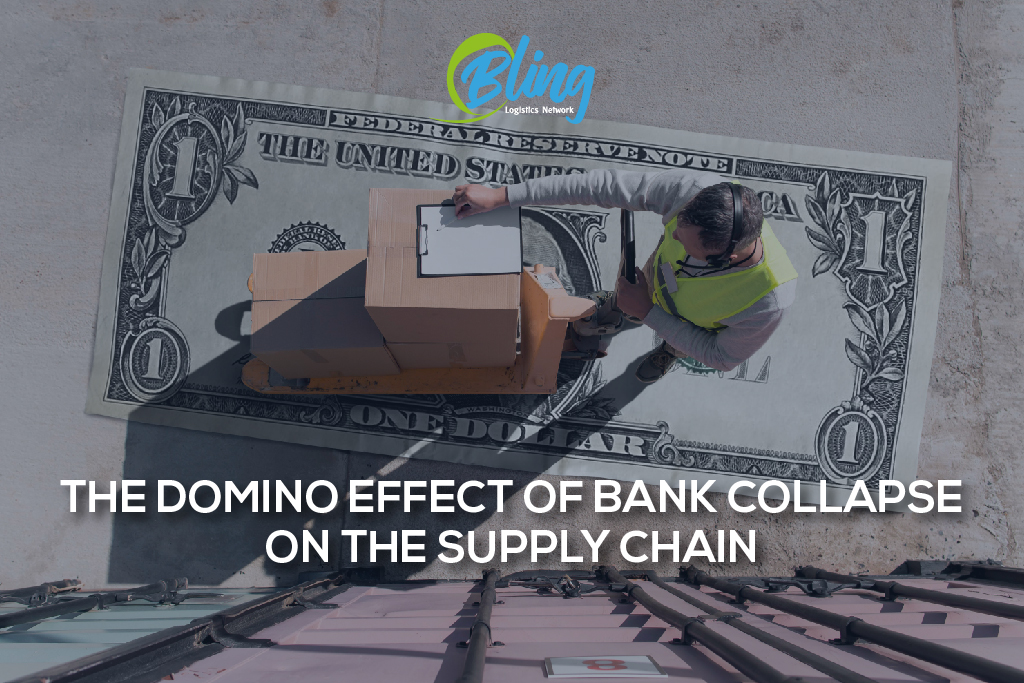The collapse of Silicon Valley Bank and Signature Bank is causing concern in the global supply chain, particularly in the USA, where the crisis seems to be centered. The market’s reaction to this was reflected in the New York Fed’s Global Supply Chain Pressure Index, which on Monday read -0.26, indicating that the problem had not been contained. Critics have questioned the reliance on archaic metrics to measure the impact on the supply chain. The failure of these banks affects the logistics industry in two main ways: by providing the finance necessary for logistics companies to operate, and by impacting liquidity in the economy, which affects the demand for logistics. This crisis has highlighted the need for businesses to be agile and able to adapt to a rapidly changing market. It remains to be seen how far-reaching the effects of this crisis will be on the long-term implications for e-commerce. The experts advise companies to find coping methods, prevent contagion and manage its effects, and build resilience to withstand additional shocks. Although the authorities are reassuring the business community, it is not a complete guarantee, and regulators must learn from this failure to prevent another crisis from occurring before full resilience has been achieved.
The New York Fed’s Global Supply Chain Pressure Index showed a negative reading, indicating that the problem has not been contained. Critics have pointed out that the metrics used by the index may be misleading. The logistics industry is particularly vulnerable to banking failures, as banking provides the necessary finance for logistics companies to operate. The pandemic has brought about seismic shifts in the global supply chain, and companies must be agile enough to adapt to the changing market. The failure of two banks associated with startups has added to the feeling of instability in the economy, and customers may become more cautious about spending, leading to less need for the global supply chain. Companies must find coping methods and build resilience to withstand additional shocks. While the authorities have sought to reassure the business community, there is no guarantee that further bank failures will not occur.
The market’s response has been reflected in the New York Fed’s Global Supply Chain Pressure Index, which registered -0.26 on Monday, indicating that the problem is not yet contained. Criticisms have been raised about the metrics used in the index, with some viewing them as outdated and misleading. The logistics industry is also impacted by banking failures as they provide the necessary funding for their operations. Furthermore, the pandemic has caused seismic shifts in the global supply chain, and companies need to be agile to react to the fast-changing market. There is a possibility that customers will become more cautious about spending due to the unstable economy, reducing the need for the global supply chain. Companies must find coping methods and build resilience to withstand additional shocks. While the authorities have sought to reassure the business community, regulators must learn from this failure to prevent another crisis.
However, there have been criticisms of the metrics used to measure the crisis, with some experts suggesting that they are outdated and unreliable. The logistics industry is particularly vulnerable to the impact of the banking crisis, as banking provides the finance necessary for logistics companies to operate, and economic instability could lead to decreased spending and lower demand for goods. However, experts have advised companies to focus on preventing contagion and building resilience to withstand future shocks. While the US government has sought to reassure the business community, there is still uncertainty about the potential for further bank failures and their impact on the global supply chain. Overall, the failure of these banks has caused widespread concern across the US economy, with implications for the global supply chain.
March 22, 2023
Credits:
You can find the original article at: https://www.shiplilly.com/blog/supply_chain-concerns_following_bank_failures/








